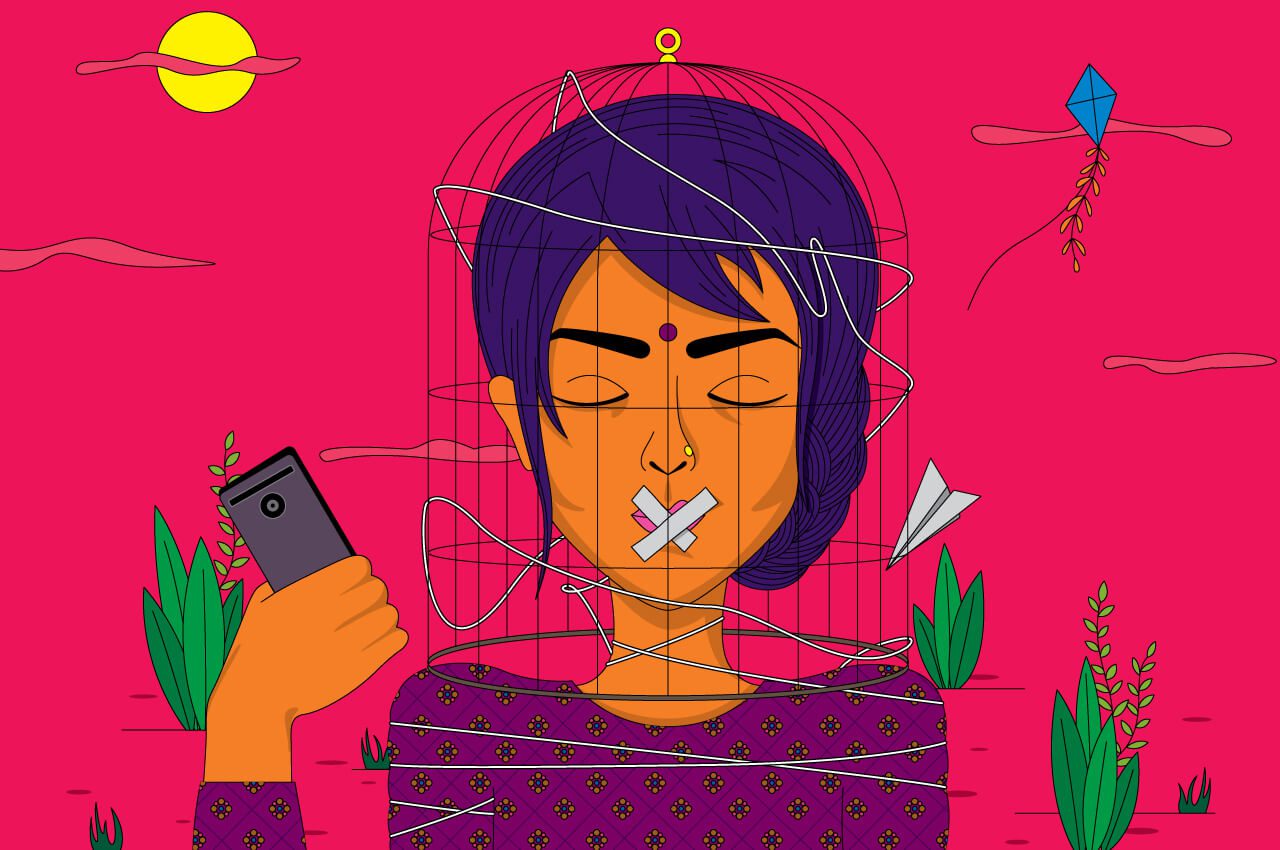Reading Time: 4 minutes
Pratima questions the notion of purity and pollution, which creates inequality in the patriarchal system. From this week, we introduce a fortnightly column by the young scholar. An exclusive for Different Truths.
Of all creatures that can feel and think,
we women are the worst treated things alive.
~ Euripides, Medea
From time immemorial, the world has been divided into the male and the female — the superior and the inferior, the subject and the object, the active and the passive. This discrimination between the two sexes and the oppression of one by the other forms the base of patriarchy. Patriarchy or the patriarchal order literally implies, “the rule of the father”, which can be taken to signify the preponderance of the domination of men. To put it simply, it is an ideology which privileges the men over women. Patriarchy has, in one way or the other, explicitly or implicitly, openly or tacitly marked the foundation of all societies and social orders are it the Occidental or the Oriental. For generations, the patriarchal set up has been deeply espoused by women who, ironically enough, have themselves been victimised for centuries.
Patriarchy has, in one way or the other, explicitly or implicitly, openly or tacitly marked the foundation of all societies and social orders are it the Occidental or the Oriental. For generations, the patriarchal set up has been deeply espoused by women who, ironically enough, have themselves been victimised for centuries.
In the twenty-first century India, the modern-day India, where women are occupying eminent positions in administration, law, corporate houses, army and air force, it is worth examining whether the patriarchy-infested idea of the secondary status of women, really changed? A case in study is the recent furore over Shani Shingnapur temple in Maharashtra, which brought the society to reconsider the norms, the values, the limits set by patriarchal society on the participation and purity of women. Though India in present times seems to have accommodated woman into its dark recesses of patriarchy and apparently lends her an independent, free voice, yet the basic Indian mindset remains muddled with the deep-rooted notions of patriarchy which are still far from obliteration.
One such idea of our patriarchal culture, touched upon in the Shani Shingnapur episode is the idea of pollution as an inherent part of a woman. Women perceived as impious are severely restricted to touch the deities in many temples/ mazars of India. Though in a landmark judgment on March 30, 2016, the Bombay High Court asked Maharashtra government to ensure that women are not denied entry to any temple and the Shani Shingnapur Trust finally allowed the women devotees to enter the sanctum, yet the ground reality is that the locals still vociferously resist the entry of women to the temple. At the level of law and governance, women might appear to emerge victoriously but the psyche of a majority of people in India is still riddled by the orthodox notion of patriarchy.
One such idea of our patriarchal culture, touched upon in the Shani Shingnapur episode is the idea of pollution as an inherent part of a woman. Women perceived as impious are severely restricted to touch the deities in many temples/ mazars of India. Though in a landmark judgment on March 30, 2016, the Bombay High Court asked Maharashtra government to ensure that women are not denied entry to any temple and the Shani Shingnapur Trust finally allowed the women devotees to enter the sanctum, yet the ground reality is that the locals still vociferously resist the entry of women to the temple.
From time immemorial, the woman, the subordinated sex, has been called in question to test her integrity and purity at every step, every phase, and every

milieu of human civilisation. Several citations exist, not only in everyday life and literature but also in the most valued and venerated religions of the world, which convince one to believe that women have, from the beginning of the world, been the objects of pollution and corruption. The Western World sees women as the source of all evil. In the Book of Genesis, it was Eve who first introduced the “innocent” Adam to sin, by paying heed to the words of the satanic snake. It is further mentioned that the wrath of God was greater for Eve, for although both Adam and Eve were held guilty of desecrating Paradise and defying God’s orders, it was Eve who was cursed with the burden of bearing a child. It seems venomous how this beautiful experience of giving birth, of bringing a new life, of creating a new being, could be labelled as the consequence of God’s condemnation? Does it not seem a blessing that womanhood has the power to create life? Has God not granted its power of creation to the woman?
Again, in the Oriental world, women are made to realise that they are impious. In the Indian society, the presence of a widow would sacrilege a marriage ceremony, an infertile woman would blaspheme the birth of a child and menstruating women would pollute the precincts of a holy place beyond limits. It is always a woman who has to prove and justify her purity and integrity of body and soul. The innumerable mythical tales of Sitas, Savitris and Satis serve to testify this. The celebrated concept of chastity is always associated with a woman; she has to undergo the test of agniparikshas to prove her righteousness. She is the whole sole carrier of the society’s honour and her virginity is famously her most expensive ornament.
Again, in the Oriental world, women are made to realise that they are impious. In the Indian society, the presence of a widow would sacrilege a marriage ceremony, an infertile woman would blaspheme the birth of a child and menstruating women would pollute the precincts of a holy place beyond limits. It is always a woman who has to prove and justify her purity and integrity of body and soul. The innumerable mythical tales of Sitas, Savitris and Satis serve to testify this.
It is indeed time, that the age-old conventions and notions of the impiety of woman be done away with and she is actually given equal rights, not only on a hollow physical plane but also on the level of the consciousness. In an era where women are striding ahead in all spheres of life, society should now dispense off all the trail of belief in the pollution of womankind and accept them as human beings.
Photo from the Internet
















Well done ma’am , your words are always very sharp & clear … Congratulations 💐
The article can truly connect to the contemporary world scenario..Gender equality needs to be promoted worldwide..very nice article!👌
Congratulations ✌
Thank you so much dear.
Nicely articulated and one can feel the angst of the author. Its written from the heart, by a perceptive mind. Well done.
Patriarchy resides in our homes. In our drawing rooms and bedrooms and kitchen. The day it becomes normal for a woman to call over her friends and sit in the drawing room with her legs on top of the table ( smoking/drinking optionals as they are just props), the day a woman decides to say No in a bedroom and the day a woman asks for food from her man in the kitchen, patriarchy will become a bad story of our past. Our mythology and religion would change. Our history would change. The notion of purity would cease to exists. It all has to start from home. Personal is always political:)
Keep writing 👍🏻
Very well written Pratima. And what a coincidence that I just saw the film Thappad. It captures what you have described and challenges it. We need more such critique in the mainstream to build a sisterhood of change.
Thank you dear! Keep motivating .
This is quite a relevant issue that has been raised by the author. Congratulations Pratima.
The author has raised quite a relevant issue. Well done .